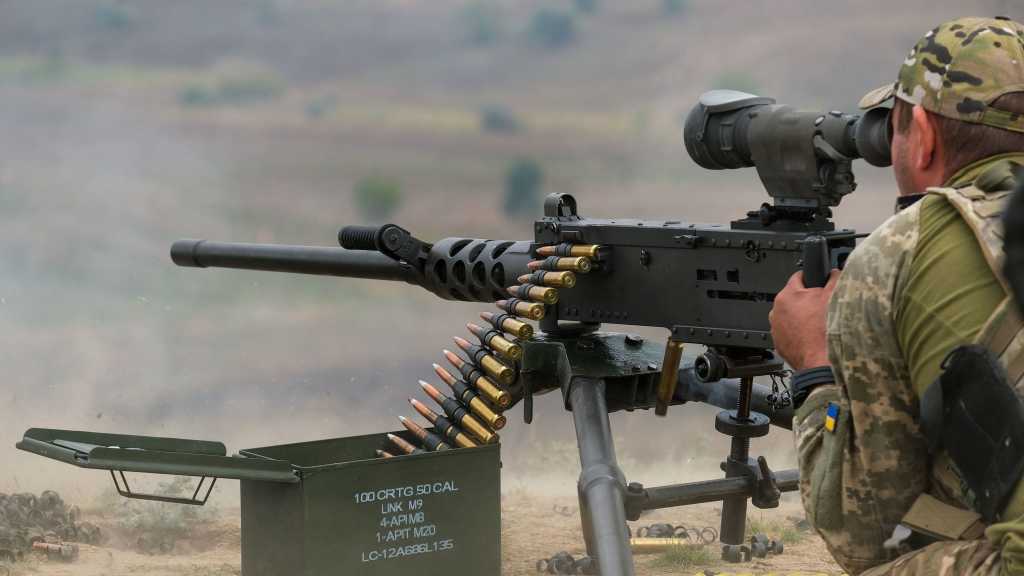
Pakistan, America, and the War to Come

A bomb attack in a remote area in northwest Pakistan left 3 US soldiers dead, raising questions on the presence of those soldiers in that area which has no direct U.S. military presence. Reports later revealed that the three soldiers were trainers.
A Pakistani journalist who witnessed the attack reported that some of the US soldiers were dressed in civilian clothes and had been identified by their Pakistani handlers as journalists, making it evident that the US military is becoming increasingly entrenched in the country.
Washington had dispatched 100 military personnel in 2008 to train Pakistani officers who would in turn pass on their skills to rank-and-file soldiers; but local sensitivities prevented Americans from being given direct access to the troops.
"There is nothing secret about their presence there," U.S. special envoy Richard Holbrooke told reporters in Washington.
But the geography of Wednesday's attack reveals just how close to the epicenter of the action in Pakistan the US military is. The attack occurred in the northwest of the country in an area where the US has no on-the-ground presence and where Pakistani forces have struggled against the Taliban and other insurgents.
According to CENTCOM, the soldiers were not members of Delta Force or the Green Berets, classifying them as "civil affairs" trainers.
CENTCOM officially describes this mission as part of an expanding "partnership with the Pakistani military and Frontier Corps," providing "increased US military assistance for helicopters to provide air mobility, night vision equipment, and training and equipment--specifically for Pakistani Special Operations Forces and their Frontier Corps to make them a more effective counter-insurgency force."
"What we're seeing is the expansion of 'white' Special Operations Forces into Pakistan," revealed a former CENTCOM member and US Special Forces with extensive experience in the Afghanistan-Pakistan theater. "As Vietnam, Somalia and the Balkans taught us, that is almost always a precursor to expanded military operations," he added.
Due to the high level of sensitivity of the Pakistan operations, the former CENTCOM employee who revealed the information to The Nation on condition of anonymity characterized the US military role with the Pakistani Frontier Corps as "training in offensive operations."
The former CENTCOM employee denied any direct combat engagement of these trainers at this stage, only to stress that that would not necessarily imply that the US military forces were not fighting in Pakistan. "Any firefights in Pakistan would be between JSOC forces versus whoever they were chasing," he said. "I would bet my life on that."
Meanwhile, the New York Times reported that "The Americans' involvement in training Frontier Corps recruits in development assistance was little known until Wednesday's attack."
A former Blackwater executive revealed that Blackwater was training and advising the Frontier Corps, working on a subcontract with Kestral Logistics, a Pakistani firm, The Nation reported.
The presence of the Blackwater personnel in Pakistan was kept secret, the former executive declared, because they worked on a subcontract with Kestral for the Pakistani government. At times, he said, Blackwater forces cross the line from trainers or advisers and actually participated in raids. "That gives the Pakistani government the cover to say, 'Hey, no, we don't have any Westerners doing this. It's all local and our people are doing it,' " said the former executive. "But it gets them the expertise that Westerners provide for [counterterrorism]-related work."
A spokesperson for the Pakistani Taliban claimed responsibility for the attack saying the dead men worked for Blackwater. "We know the movement of US Marines and Blackwater guys," said Taliban spokesperson Azim Tariq, "And we have prepared suicide bombers to go after them."
The United States dismissed the claim about Blackwater as "propaganda and disinformation."
Meanwhile, the former CENTCOM employee cautioned that there is growing concern within the military about what is perceived as the disproportionate and growing influence of JSOC's lethal "direct action" mentality on the broader Special Forces operations in Afghanistan and Pakistan.
Previous reports in November revealed that JSOC operates a parallel drone bombing campaign in Pakistan, carrying out targeted assassinations of suspected Taliban and Al Qaeda operatives, "snatch and grabs" of high-value targets and other sensitive action. JSOC also operates several secret bases inside Pakistan. A military intelligence source revealed that these actions are "deeply classified" and "not subjected to any form of comprehensive oversight by Congress".
With General Stanley McChrystal, who commanded JSOC from 2003-2008, running the war, forces and military commanders who have become accustomed to operating in an "unaccountable" atmosphere now have unprecedented influence on overall US military operations, opening the door for an expansion of secretive, black operations done with little to no oversight.
"The main thing to take away here is a recognition and acceptance of the paradigm shift that has occurred," says the former CENTCOM employee. "Everything is one echelon removed from before: where CIA was the darkest of the dark, now it is JSOC. Therefore, military forces have more leeway to do anything in support of future military objectives. The CIA used to have the ultimate freedom--now that freedom is in JSOC's hands, and the other elements of the military have been ordered to adapt."
The former CENTCOM member also revealed that what is unfolding in Pakistan is part of the Bush-era philosophy which is being continued by the Obama administration: the philosophy of "preparing the battlefield." He sketches out a pattern wherein "black" operations are followed by "white" operations and then conventional US forces.
The "preparing the battlefield" justification was implemented by the Bush administration to ward off Congressional oversight of hush-hush military operations. Whereas the CIA is legally required to brief the Intelligence committees on covert operations, JSOC has traditionally operated outside the purview of Congressional oversight. "This allows the JSOC/Special Mission Units more freedom to expand or absorb traditionally CIA missions," he says.
Former War Secretary Donald Rumsfeld and his deputy Stephen Cambone had embraced this model. President Obama and his War Secretary Robert Gates have also adopted the model, keeping it in action to this day.
The United States does not publicly acknowledge US military operations in Pakistan. On CENTCOM's website, they are described in vague terms. CENTCOM's Pakistan page declares that it "will of course continue to target, disrupt, and pursue the leadership, bases, and support networks of Al Qaeda and other transnational extremist groups operating in the region... We will do this aggressively and relentlessly."
The US administration has downplayed the role of its military forces in Pakistan Since President Obama's inauguration.
In July, Ambassador Richard Holbrooke said bluntly, "People think that the US has troops in Pakistan, well, we don't."
On Wednesday, after the US soldiers' deaths, his tune changed dramatically. "There's nothing secret about their presence," he said.
This makes only one thing certain. Obama's administration will find it increasingly difficult to deny as the situation in Pakistan becomes more volatile and the US military presence in the country expands.



